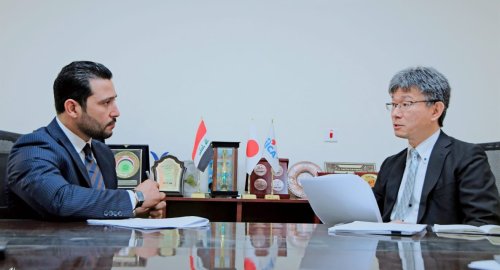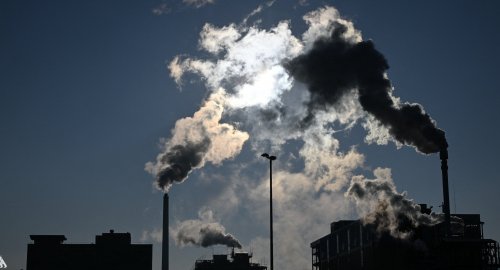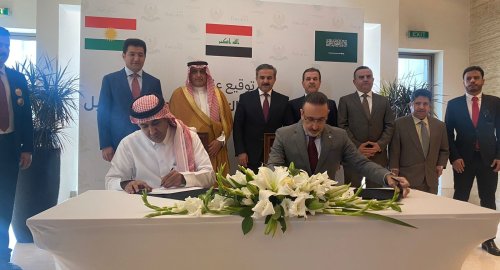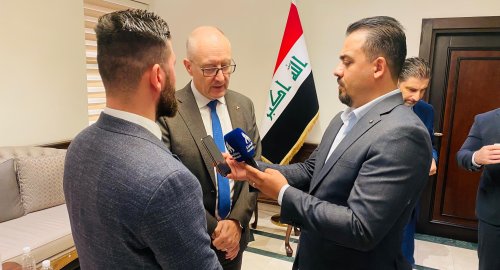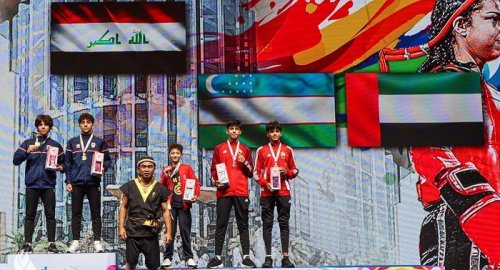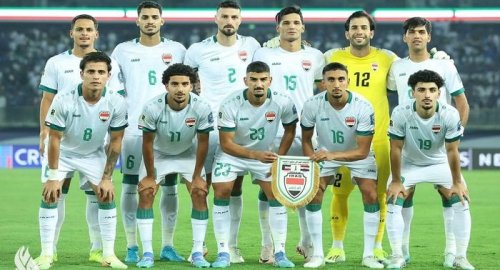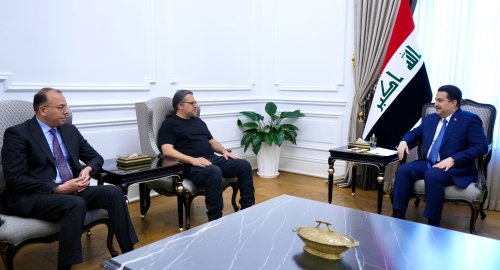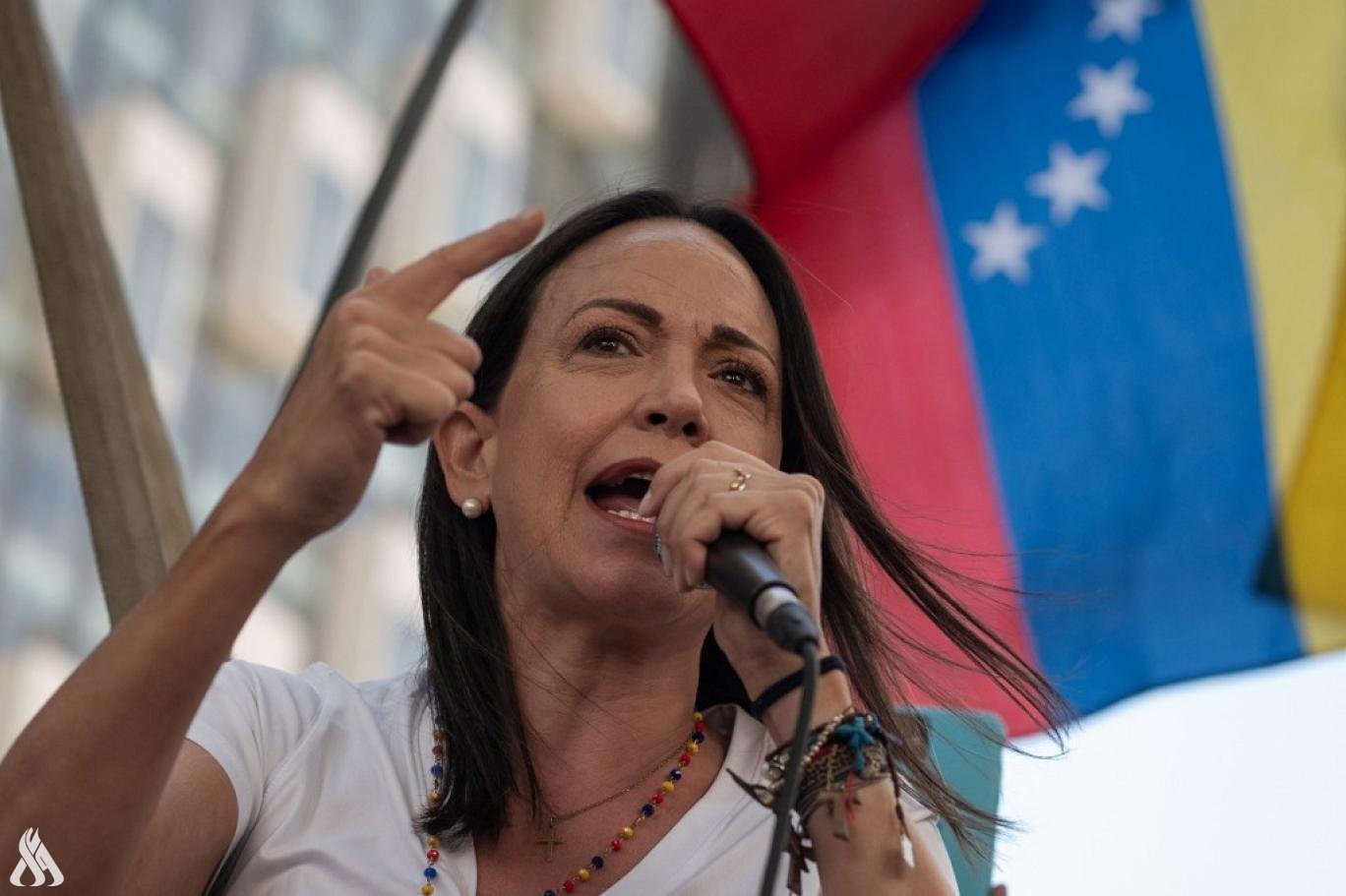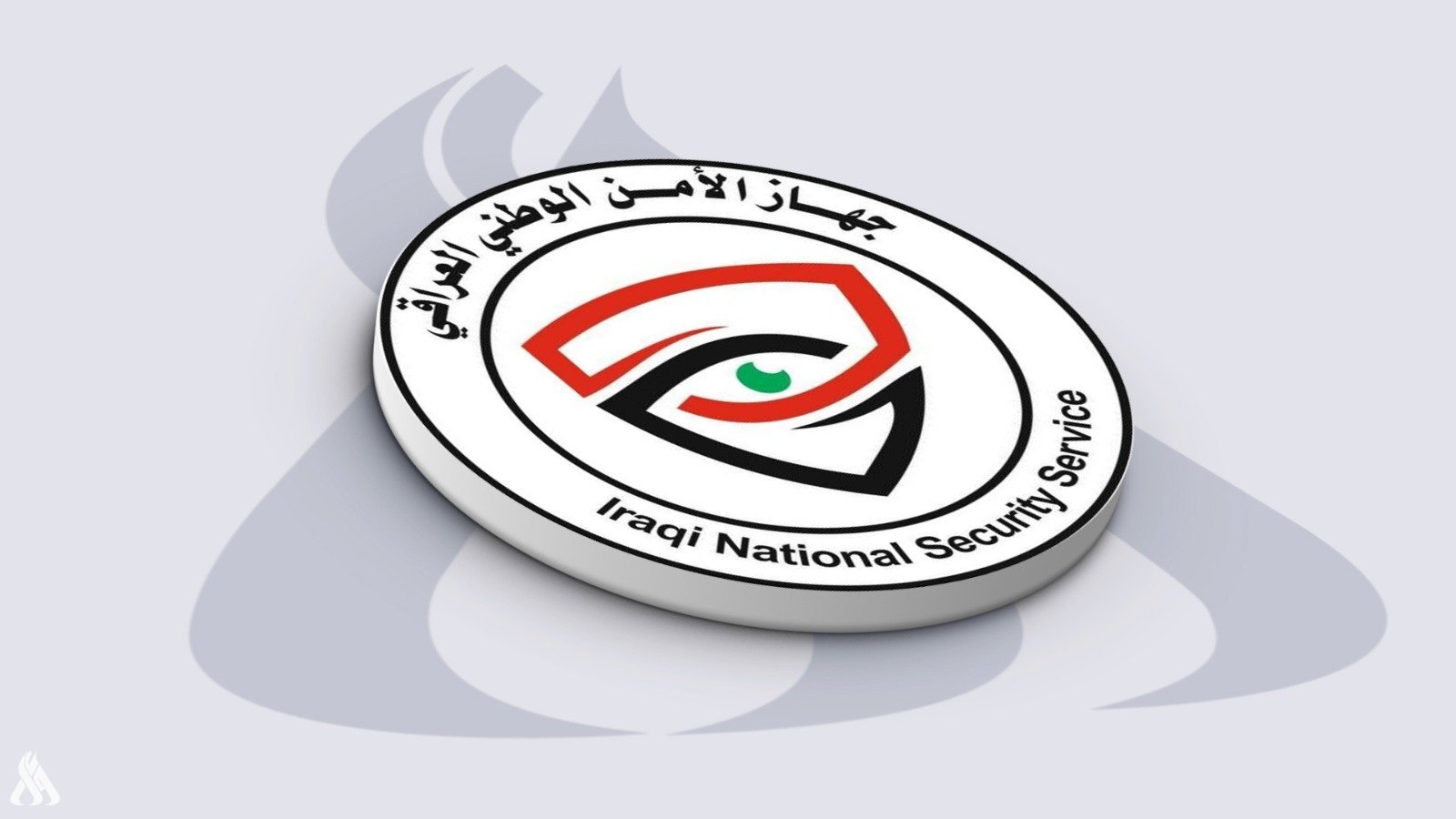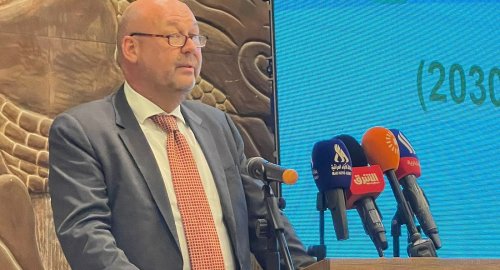
UNDP: Various sectors in Iraq have benefited from renewable energy

- Yesterday, 21:52
Baghdad - INA
The Resident Representative of the United Nations Development Program, Auke Lootsma, confirmed today, Wednesday, the success of the Iraqi government in using renewable energy in various sectors, allowing Iraq to move to a future characterized by low carbon emissions, sending three messages to implement the national strategy for protecting and improving the environment in Iraq in the best possible way.
Lootsma said at the conference to launch the National Strategy for Protecting and Improving the Environment in Iraq, 2024-2030, which was attended by the correspondent of the Iraqi News Agency (INA), that "the national strategy for protecting and improving the environment in Iraq represents a vision for a prosperous future in Iraq to confront all environmental risks and cooperation to build communities and a resistant and better Iraq."
He added, "The most important point in the strategy is the ecosystem with a population growth of 25%," noting that "the plan focuses on Iraq having a diversified economy as well as working to reduce the use of plastic and risk management functions and medical waste is a very important point to protect public health in Iraq."
"The Iraqi government is focusing on building capacities and strong legislation that pave the way for a safer and healthier Iraq," he continued, announcing the United Nations' support for government initiatives in economic diversification, with the strategy focusing on rehabilitation, facing challenges and protecting national wealth in Iraq.
Regarding the water file, Auke Lootsma said that "Iraq suffers from water problems with increased use in homes and the drying up of some marshes," stressing the need to find innovative solutions through the use of renewable energy and advanced tools to obtain clean water for every Iraqi.
He continued, "Agriculture in Iraq is one of the important pillars of the economy in terms of safety and job opportunities," indicating that "the strategy focuses on economic development, improving job opportunities and improving the rural environment in Iraq."
The Resident Representative of the United Nations Development Program in Iraq pointed out, in his talk about the oil and transportation sectors, stressing that "the use of renewable energy is the basis of the strategy," while stressing that "the use of public transportation allows Iraq to move to a future characterized by low carbon dioxide."
"The strategy focuses on improving water, solid waste management, reducing emissions from oil production, and protecting the environment," Lootsma added, stressing the need to enhance government agencies' reports, systems, and mechanisms on reducing carbon emissions to unlock investment opportunities in the environmental sector in Iraq.
The UN representative explained that "the strategy will be effective with serious implementation and what it requires in terms of innovation, funding, and cooperation from the government, its international partners, the private sector, civil society, and citizens."
At the end of his speech, the UN representative shared three messages, including:
- The existence of an integrated government approach in full cooperation with society
- The United Nations Development Program is part of the strategy and supports its implementation by collecting grants and funding
- Financing the strategy through financial allocations in the budget
Germany: Iraq's economy is showing signs of improvement
- Economy
- 04:30
In FIFA's rankings rankings, Iraq maintains 55th
- Sport
- 04:12
Al-Sudani Meets Palestinian Poet Tamim Al-Barghouti
- politics
- 04:04
In Iraq, INSS launches first cyber-security platform
- Security
- 24/09/13
Le Parisien: In a fateful decision, Hakimi informs PSG
- Sport
- 24/09/13

